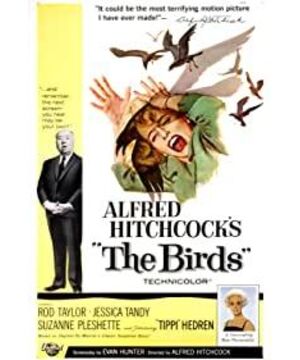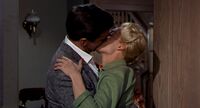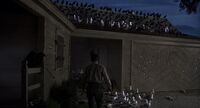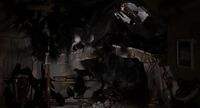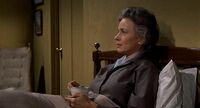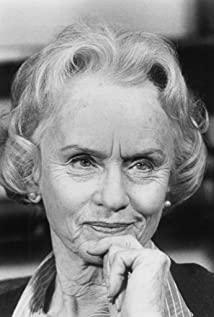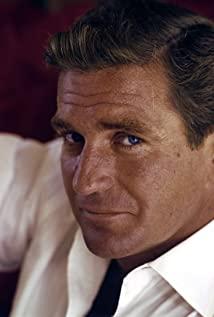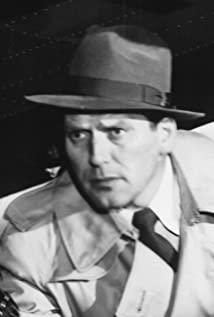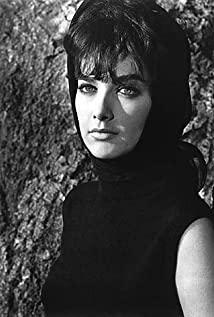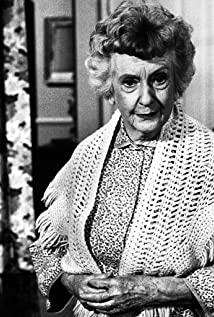*quick "hysterical" push-pull shots*
When Lydia discovers Dan's body, Hitchcock doesn't give a "normal" close-up that we envision, but through two abrupt cuts, we face the terrifying eye socket unsuspecting.
His push-pull lens moves from the real world to the real world. The end point of the lens is the spot, the real object. There are two forms: one is the gaze of the other;
*famous god shot*
This bird's-eye view of the large long-range lens embodies a paradox: the unmoving push-pull lens. Generally speaking, God is objective and fair, and through such a lens we watch everything in the panic in the town. Suddenly, a few birds fly into the frame from behind the camera (and behind us), completing the subjectification: we are no longer the innocent and fair spectator, but the gaze of the subjective, intimidating bird.
*Why do birds attack? *
"Cosmological": The well-ordered universe is always deceitful. Self-evident terror can arise at any moment, traumatic reality can erupt at any moment. This is the sight glass of a God who is brutal, arbitrary, indifferent, and ready for disaster.
"Ecology": "Birds of the world, unite! Fight against this cruel human world! 》
"Family Theory": Birds are the embodiment of fundamental disputes in family relationships.
*bird is not a symbol*
The bird does not represent the maternal superego, or anything like a blocked sexual relationship and a possessive mother. It is the presence of the real, their mass appearances and traumatic attacks that obstruct and obscure the meaning of the film.
"The Birds" is the film that ultimately constitutes the Hitchcockian system: the bird is in Hitchcock, the embodiment of the bad object, a copy of the rule of motherhood. It is also the combination of the "evil object of magic" and the decree of motherhood that constitutes the core of the Hitchcockian vision. (Psycho)
So, when Lydia nods in recognition of Melanie, she ditches her superego role. The bird is no longer needed, the bird is no longer attacking, and the evil object is at peace without the support of the decree of the maternal superego.
View more about The Birds reviews


